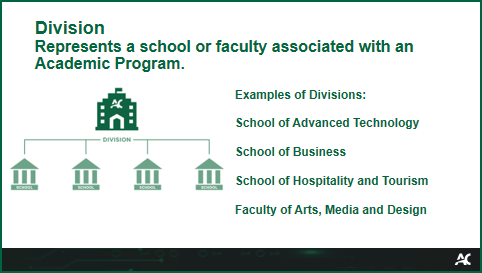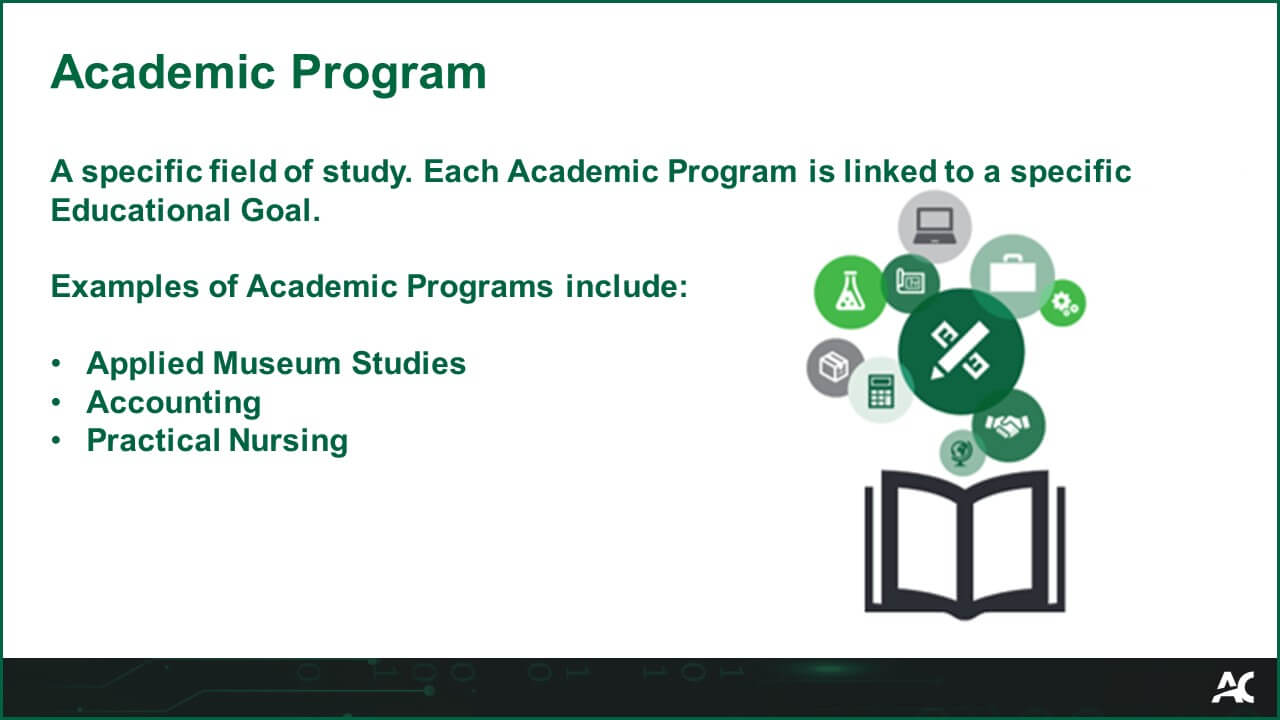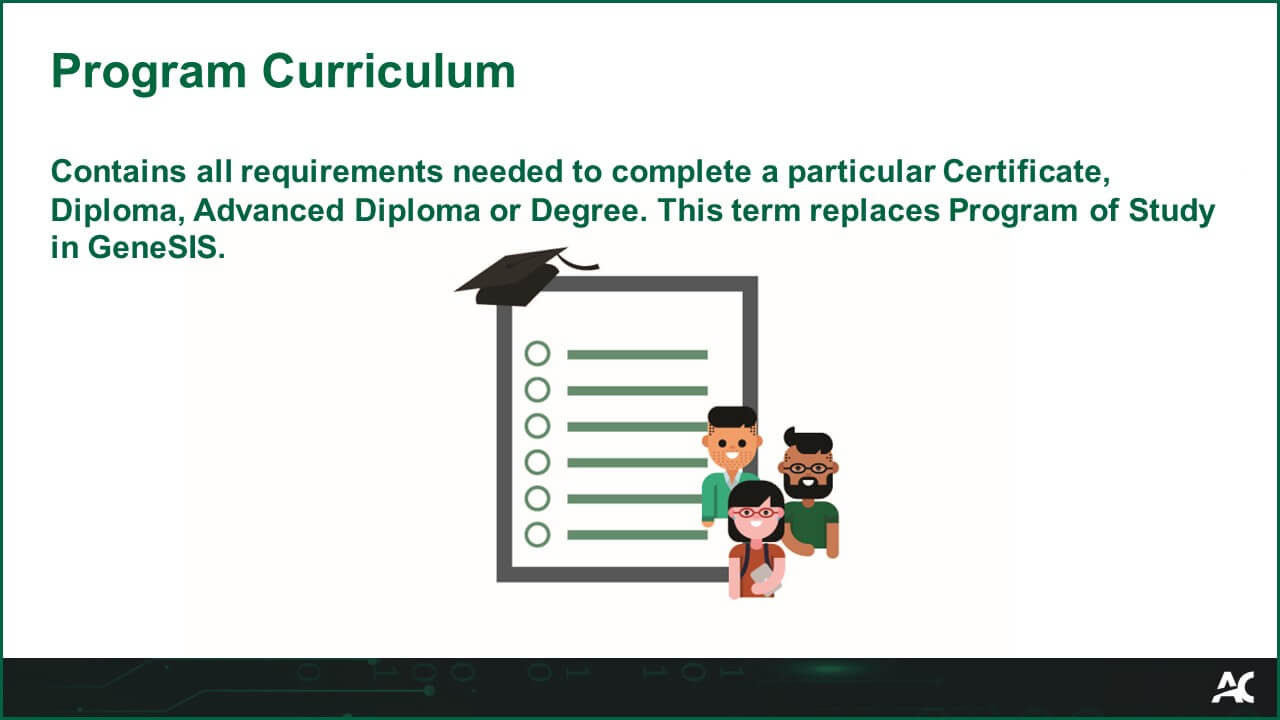An introduction to some Thesis SM language
Posted on Thursday, January 12th, 2023
One of the things that the R3 Project is doing is introducing a new Student Information System (SIS), Thesis Student Management (Thesis SM).
With the introduction of a new, cloud-based system comes new terms that were adopted by Thesis SM. As we begin transitioning from our current SIS, GeneSIS, to Thesis SM, we’ve had to look at the terms that we currently use and compare them to the ones Thesis SM has given us.
During this process, we’re continuously thinking about the Algonquin College community to ensure that the new Thesis language aligns with our goals and five main objectives.
With that, we will focus on three new terms that we’re going to be using with Thesis SM: Division, Academic Program and Program Curriculum.
Let’s define these terms to give more context on their importance and what this means for employees using the new SIS:
Division
A Division represents a school or faculty associated with an Academic Program. It’s essentially an entity that represents the “owner” of a set of programs.
Some examples of Divisions include:
- School of Advanced Technology
- School of Business
- School of Hospitality and Tourism
- Faculty of Arts, Media and Design

Academic Program
An Academic Program refers to specific fields of study, such as Museum Studies, Accounting, Practical Nursing, among others.
Each Academic Program is linked to a specific Student Goal (Certificate, Diploma, Advanced Diploma, Graduate Certificate, Degree).

Program Curriculum
A Program Curriculum maps the requirements needed to complete a particular Certificate, Diploma, Advanced Diploma or Degree.
For example, the course and program requirements to be completed in order to be awarded a Diploma in Hospitality—Hotel and Restaurant Operations Management.
The Program Curriculum is very similar to our current “Program of Study”.
Thesis SM has additional capabilities, such as including “milestones” (portfolio, exams, work-integrated-learning, etc.) in addition to academic course requirements.

We encourage you to review the Glossary page on the R3 Project website and consider how they relate to the terms you use now and how they differ. As you begin to understand the concepts they represent, you’ll also begin to understand how the work you do will change. You can also check out the R3 Project FAQ page—it’s a great resource if you need some questions answered!
Additionally, don’t miss our next R3 Showcase Event to receive important updates and learn more about the R3 Project. We’ll also be happy to answer any questions that you might have.
The next R3 Showcase is set for Tuesday, Feb. 28, 2023, at 2:00 p.m.
- Posted in
- News R3